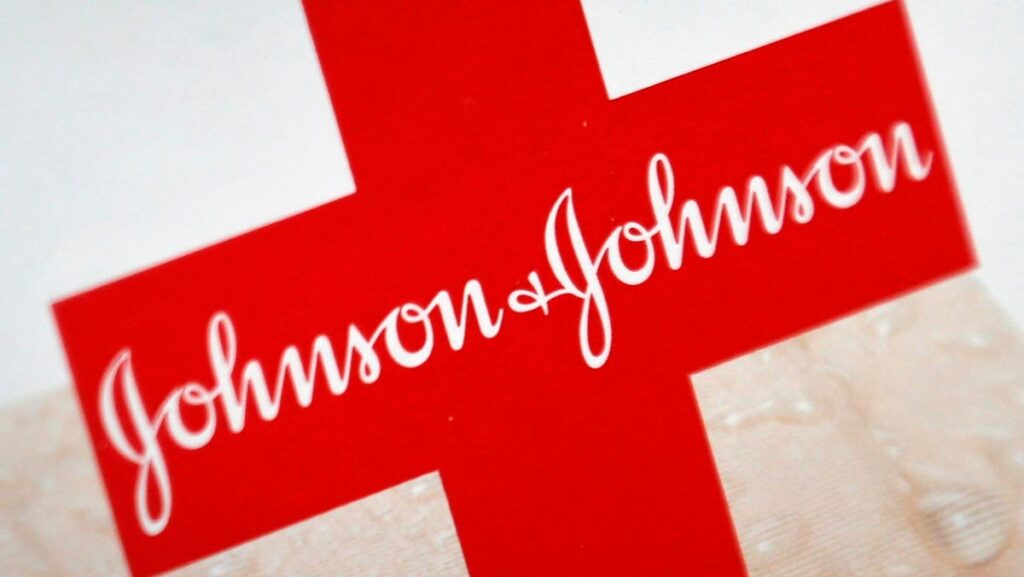Topline
Johnson & Johnson is allowing Stop TB Partnership, a Switzerland-based nonprofit, to distribute a generic version of its tuberculosis drug SIRTURO, or bedaquiline, in low- and middle-income countries, a move that averts fears the drug will stay out of reach financially for many communities around the world.
The Johnson & Johnson logo can be seen on this package of Band-Aids. (AP Photo/Chris O’Meara, File)
Key Facts
Under an agreement announced Thursday, the nonprofit Global Drug Facility, an arm of Stop TB Partnership, will be able to tender, procure and supply generic versions of bedaquiline for most low- and middle-income countries, including countries where Johnson & Johnson’s patents remain in effect.
This will allow the drug to be offered at much lower prices, expanding the amount of people who can afford it.
Brenda Waning, chief of Global Drug Facility, said in an interview with Forbes this gives them the ability to sell generic versions of the drug in 44 countries—-including Mozambique, the Philippines and Zambia—-where, because of the patent, they wouldn’t otherwise be able to.
That’s in addition to 52 countries where they can already sell as Johnson & Johnson’s patents expired there.
Waning said her and her colleagues have already coordinated with two Indian manufacturers, Lupin and Macleods, to produce the drug, and the organization will soon be accepting bids and selecting a primary and secondary manufacturer, adding that “everything is already in place.”
However, Johnson & Johnson previously established an exclusive agreement with Russian pharmaceutical company Pharmstandard in many countries, particularly in eastern Europe and Asia, meaning Stop TB Partnership won’t be able to offer the generic in those countries, but Waning said the company gave them access to “every low- and middle-income country they could.”
Crucial Quote
“In my knowledge, I can’t recall a similar deal to this,” Waning said, adding she hopes the deal will “set a model” for future arrangements.
Key Background
Tuberculosis kills 1.5 million people every year, according to the World Health Organization. That makes it the world’s deadliest infectious disease and the 13th-leading cause of death globally. This is despite the fact that the disease is curable. Bedaquiline, which was first produced by Johnson & Johnson with the help of hundreds of millions of dollars from the U.S. government, was approved by the Food and Drug administration in 2012, and soon was distributed globally. As of 2023, Johnson & Johnson still holds a patent on bedaquiline in many countries, preventing cheaper generic versions of the drug that many might be able to afford from entering the market (Johnson & Johnson charges $272 for the total six-month course needed to treat tuberculosis, but one study published in 2017 estimated that if generics entered the market, the price would fall to somewhere between $48-$102). Johnson & Johnson’s patent was set to expire July 18, but due to some legal maneuvering known as “evergreening,” where the company filed for a secondary patent, the company will maintain its exclusive right to sell the drug in many countries. This created fears, including from organizations like Doctors Without Borders, that Johnson & Johnson would keep the price of the drug too high for many low- and middle-income countries to afford, leading to unnecessary deaths from the disease. This deal averts some of those fears.
Tangent
The deal comes amid a pressure campaign from novelist and social media figure John Green, who had been publicly calling on Johnson & Johnson to make the drug available as a generic prior to this deal’s announcement. In a scathing YouTube video entitled “Barely Contained Rage: An Open Letter to Johnson & Johnson” that received nearly 1 million views, Green called Johnson & Johnson’s decision to extend its patent through evergreening “reprehensible and completely out of line with their credo” and encouraged his viewers to contact the company with their concerns. His followers also got #PatientsNotPatents briefly trending on Twitter. However, Green’s anger turned to elation when the deal was announced, telling Forbes in a statement: “I am grateful to the Stop TB Partnership, TB activists everywhere, and to Johnson & Johnson for living up to their corporate credo. They really are putting patients first with this decision, and should be commended for it.”
Further Reading
Breakthrough For Tuberculosis—One Of The World’s Biggest Killers—As New Vaccine Shows Promise In Early Trials (Forbes)
Tuberculosis Deaths Are Rising Again As Covid Pandemic Unravels Years Of Progress (Forbes)
Gates Foundation To Donate $50 Million, Partner With Beijing And Tsinghua To Fight Infectious Disease (Forbes)


